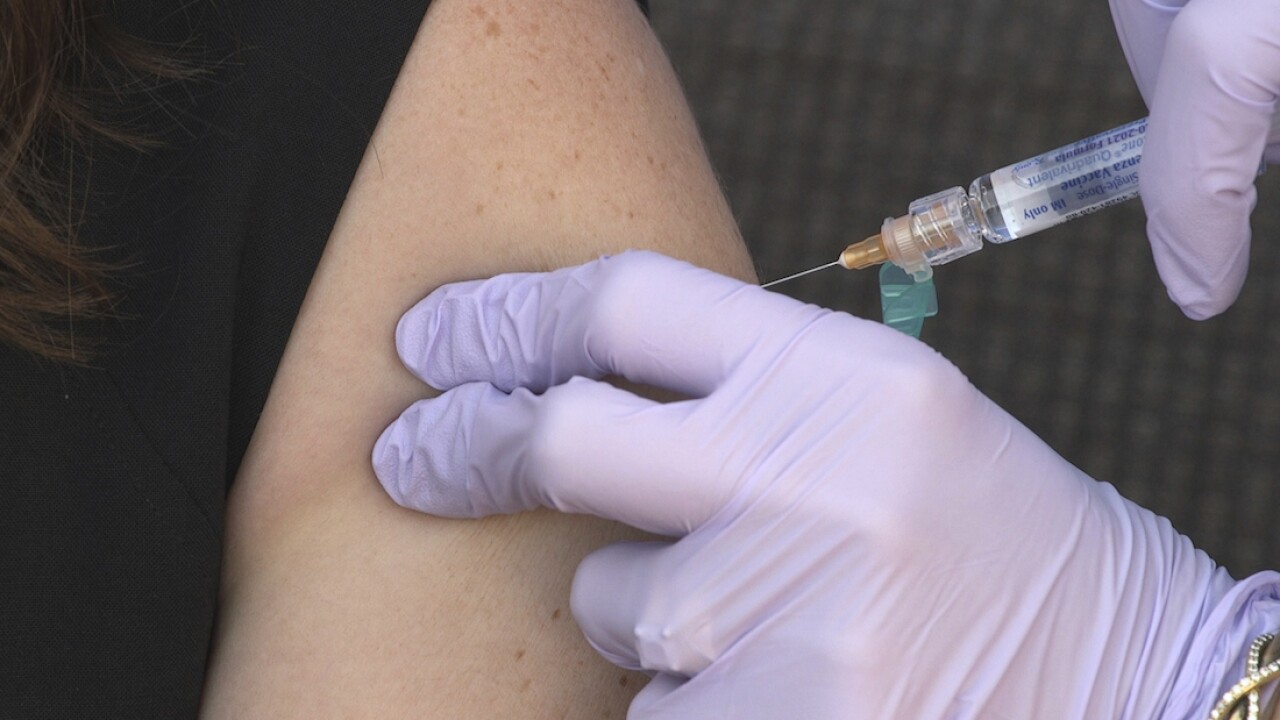HAMPTON ROADS, Va. – Eric Cramer and his girlfriend Jo-Beth Strong are both fully vaccinated against COVID-19. They got the Moderna shot, but their side effects differed.
“I had migraines,” Cramer said. “I had back pains, everything. I have a high immune system and I never get sick, and it hit me.”
Strong said she hardly had any symptoms and believes it was because she hydrated.
“Drink lots water right before and after,” she said. “He did not; I did, so therefore, I didn’t get so much of the side effects.”
Virginia Department of Health Chief Deputy Commissioner Dr. Parham Jaberi said experiencing side effects is not necessarily a bad thing.
“This is telling you actually the vaccine is doing its job,” he said. “The vaccine is working.”
Dr. Jaberi said with Pfizer’s and Moderna’s two-shot vaccine, side effects after the second dose might be more intense.
Common side effects typically begin several hours after the shot and include tiredness, headache, muscle pain, chills, fever and nausea.
Johnson & Johnson’s one-shot vaccine has similar side effects.
Moderna’s shot reportedly had slightly higher side effects than Pfizer’s, with more people experiencing fatigue and headaches.
According to Pfizer, about 3.8% of their clinical trail participants experienced fatigue as a side effect, and 2% got a headache.
Moderna said 9.7% of their participants felt fatigued and 4.5% got a headache.
All three vaccines include arm pain from the shot.
Dr. Jaberi said younger people are more likely to experience symptoms.
“If you are elderly or if your immune system is not quite as robust, then you may not experience all of these side effects,” he said. “If you don’t experience any of the side effects, it does not mean the vaccine is not working.”
While there’s no specific way to prevent side effects, Dr. Jaberi said you should rest up, drink plenty of fluids and if you have a fever, take over-the-counter pain relief medication after the shot, not before.
If mild symptoms don’t go away after a couple days, call your doctor. If you develop a severe allergic reaction after the COVID-19 vaccine, health officials said seek immediate medical attention by calling 911.
Despite some discomfort, Dr. Jaberi said getting the shot is worth it.
“Vaccination is the most effective form of prevention,” he said. “This is the best thing any of our community and residents can do to protect themselves and those around them…The more individuals get vaccinated, the quicker we all get vaccinated, the sooner we can put this pandemic behind us.”
The J&J shot is now on pause around the country after the CDC said several people developed blood clots. The CDC is also investigating whether a Virginia woman’s death is linked to adverse side effects from the shot.




